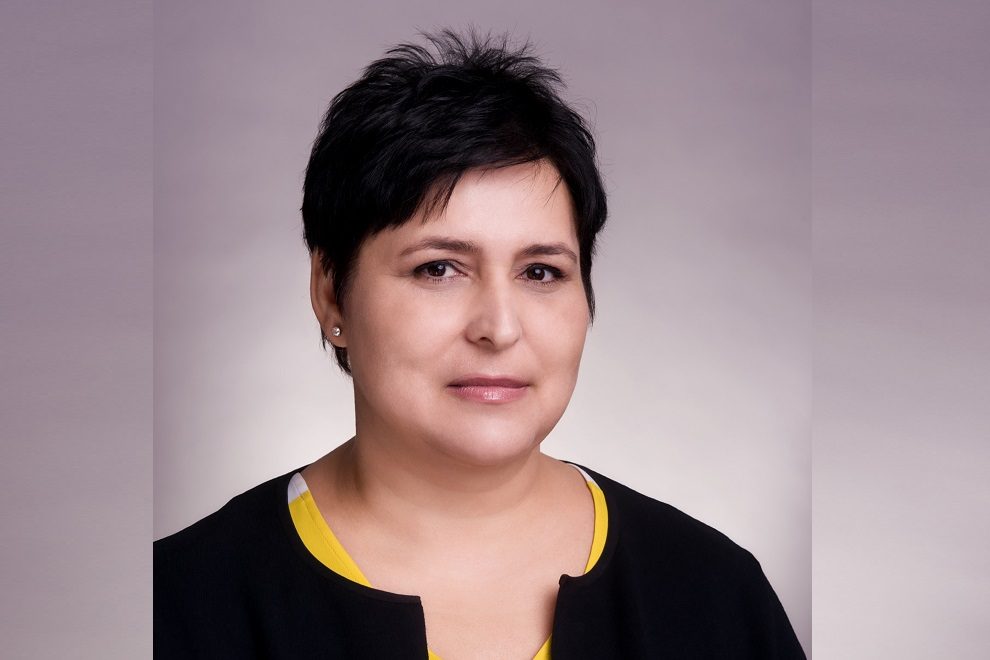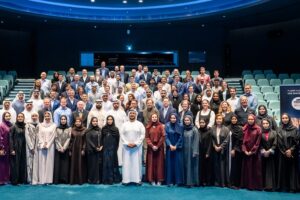Ksenia Drozdova, Deputy Director General for Business Development of Russian Satellite Communications Company (RSCC), was elected Director General of the Intersputnik International Organization of Space Communications (IOSC). The decision was passed at the joint 49th session of the Board and 23rd session of the Operations Committee of the Intersputnik International Organization of Space Communications (Intersputnik IOSC), held from April 5 to May 14, 2021 in a remote format.
Ksenia Drozdova was nominated to the post of Director General by the Ministry of Digital Development, Communications and Mass Media of the Russian Federation (Ministry). In this respect, the Ministry expressed confidence that Ksenia Drozdova being elected the Director General of Intersputnik would ensure stable operation and further development of the organization. Sixteen organizations acting as the members of the Board of Intersputnik IOSC and on behalf of the Members, and 19 organizations members of the Operations Committee took part in the voting for the Director General.
From 2009 for more than 10 years Ksenia Drozdova had held office as the Chair of the Operations Committee of Intersputnik IOSC. Under her leadership, the Operations Committee established effective interaction between Intersputnik member countries and significantly expanded the satellite capabilities that organization members offer to their customers.
As Director General of the international organization, Ksenia Drozdova will head the Directorate – the permanent executive and administrative body of Intersputnik – and will be engaged in the further development of the organization. Intersputnik IOSC will continue the policy of strengthening ties and coordinating interaction both within the system of international organizations and with regional telecommunication organizations. Intersputnik also plans to actively develop its own space fleet, including in the virtual network operator (VNO) model.
“Our priority is to provide people of the Intersputnik member states with convenient access to all satellite-based services: from B2B solutions to end user communication options,” said Ksenia Drozdova. “The members of our organization have satellite fleets in different orbits – low, medium, geostationary – and the service areas of their spacecraft cover the entire globe. I believe that Intersputnik will use all advanced capabilities of the constellations in any type of orbit to provide the most modern services and eliminate the digital divide around the world.”
From 2008, Ksenia Drozdova had been in charge of business development at a leading Russian satellite operator RSCC. She had initiated and managed a number of projects to promote Russian satellite constellation-based communication services to foreign markets. She is the author of numerous articles on the development of satellite communications in Russia and a co-author of the development strategy of Russian Satellite Communications Company. She was awarded the Medal of the Order for Merit to the Fatherland of the II degree, the gratitude of the President of the Russian Federation for her great contribution to the implementation of the project for the Russian Federation’s transition to the digital TV broadcasting, the Certificate of Honor of the President of the Russian Federation, numerous departmental and enterprise awards. Ksenia Drozdova was also an award winner of the 2020 Prize of the Government of the Russian Federation in the field of science and technology for the creation of a national satellite constellation to provide digital telecommunications services in the Russian Federation.
Founded in 1971 under the Agreement on the Establishment of the Intersputnik International System and Organization of Space Communications, Intersputnik is an international intergovernmental organization headquartered in Moscow. The organization’s mission is to contribute to the consolidation and expansion of economic, scientific, technological and cultural relations using satellite telecommunications, video and audio broadcasting and to support cooperation and coordination of the efforts of the member countries aimed at designing, procuring, operating and expanding an international satellite telecommunications system. Intersputnik can be joined by the Government of any state that shares the principles of Intersputnik’s activity. Today, the organization has twenty six member countries.
Intersputnik’s core activity is to make available to interested customers the world over geostationary satellite capacity used to offer a full range of satellite telecommunications services. At present, Intersputnik provides access to satellite resources of major satellite telecommunications systems, including ABS, Azerspace, Eutelsat, Intelsat, SES, Express, and Yamal. To offer full-scale services encompassing the establishment and operation of satellite telecommunications networks, including ground infrastructure, Intersputnik founded Isatel, its Russian subsidiary company.








